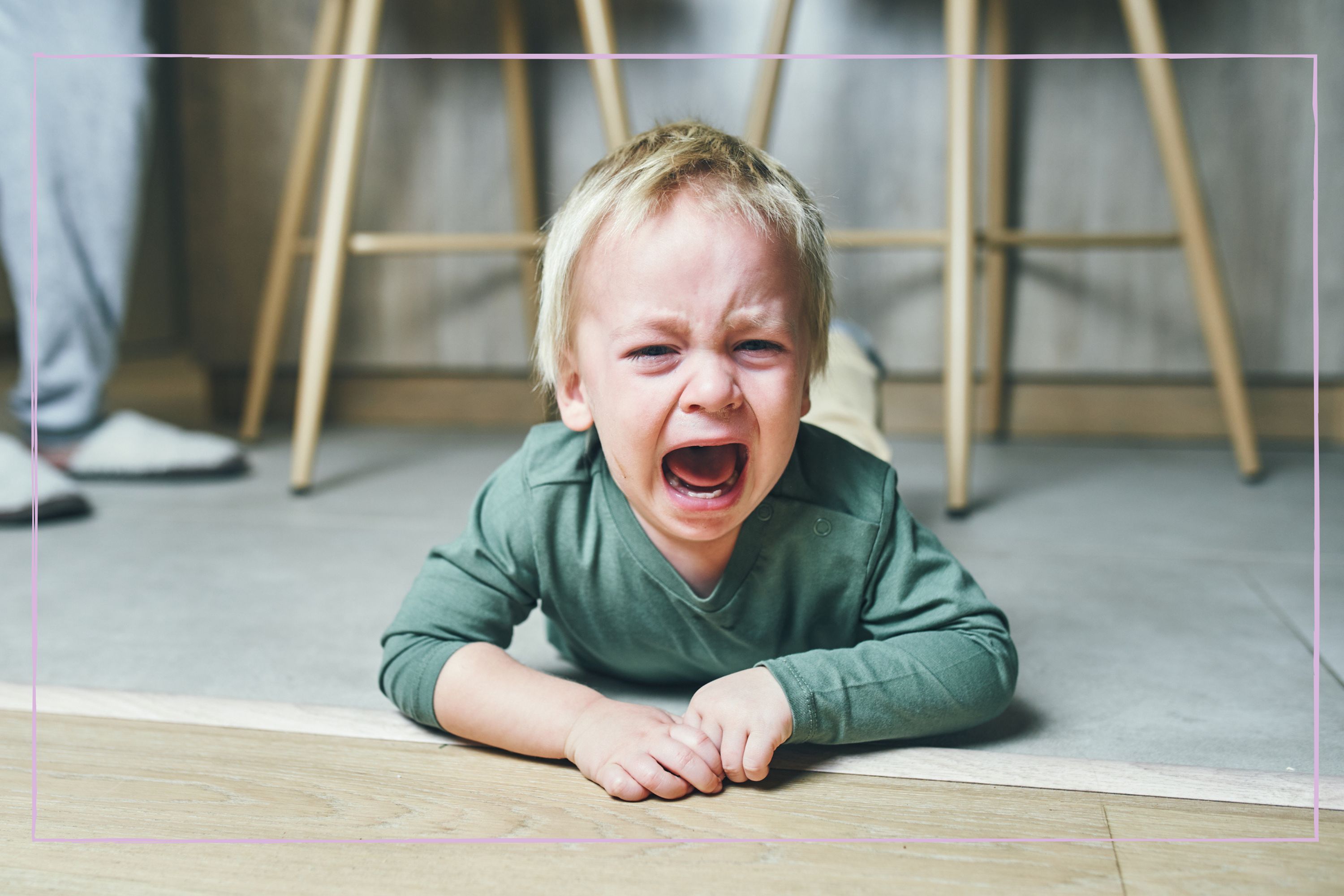
If you ever film your child when they're having a meltdown, it not only prevents you actively engaging with their difficult feelings, but a psychologist warns of the one 'big message' this sends that could strain your relationship.
While parents want to avoid meltdowns altogether, there's very little chance of preventing them ever happening. From struggling with school run meltdowns to strong resistance to boundaries, children are going respond to the big emotions they aren't sure what to do with. Experts offer ways to support kids through these difficult experiences, including encouraging parents to 'get curious' about their kid's meltdowns in the first instance.
As tempting as it might be to document your child's behaviour, experts warn against filming your little one in the middle of a meltdown. GoodtoKnow family editor, Stephanie Lowe, says "Some people forget children are just little humans. If my husband whipped his phone out to film when I was struggling and having a hard time emotionally it would be awful. And, more importantly, most adults would agree that it's not okay, so why is it when it's a child? As resident expert and author Sarah Ockwell-Smith tells us, 'it is childist to treat children differently just because they are children', and I wholeheartedly agree."
Psychologist Dr. Supatra Tovar, suggests when you film an emotional outburst, you send one big message to your child: That you don't value their emotions or take them seriously. Children need their parents during times of stress, and you can't offer appropriate comfort if you're concentrating on filming the incident.
Speaking to She Knows, Dr. Tovar says "It’s important to prioritize empathy, understanding, and support over documentation. Each time your kid experiences one of their epic big feeling moments, it’s a chance to create a stronger connection - which benefits your kiddo’s development and well-being." It's not only the messages you could send your child by filming them being upset, but there is the potential to miss out on other subtle cues that could help you calm them down.
"When you film an emotional outburst, you send one big message to your child: That you don't value their emotions or take them seriously."
Dr. Tovar says that as children often communicate their feelings non-verbally, they can make quick changes to their facial expressions or body language. By focussing on your phone, these small moments can be missed and prevents you achieving resolution of the problem. Actively engaging with a child having a meltdown models how to begin managing their own feelings and what expressing themselves constructively looks like.
Research shows children have the ability to notice details adults often miss - even very young children can be aware they're being filmed, even if parents think they're too little to understand. This means that filming them can intensify their emotional reaction - fidgeting or avoiding eye contact can all be signs your child is upset at being filmed that adults can overlook. Adults should be on the lookout for any non-verbal cue pointing to a child's behaviour escalating. If your little one asks directly not to be filmed, their wishes should be respected.
Some might believe that sharing videos of a child's meltdown to social media could offer teachable moments such as demonstrating how they dealt with the behaviour. Others might do it for solidarity to show other parents they aren't alone. Even sharing such content with the best intentions can be a violation of a child's privacy, and affect the trust they have in their parents.
Kids usually demonstrate big emotions around those that make them feel safe. Filming these moments removes their safe space and can affect the parent-child attachment. Dr Tovar says "Knowing that their parents may broadcast their vulnerable moments to a wider audience can damage the bond between parent and child." She concludes "It’s essential to prioritize being fully present and engaged with your child to nurture a strong and trusting relationship built on mutual understanding and connection."
For more on big emotions, we share the five phrases to avoid when your child is mid-meltdown, according to an expert, and why wanting something and not having it is one of the hardest experiences your child can have. There could be mum rage if you're overwhelmed by frequent meltdowns, but there are ways to soften these feelings.







